The STEM fields offer highly specialized career paths that students flock to every year. But there are a lot of science programs out there, and sometimes it’s hard to decide which field to go into. To help you make your decision and put you on the path to a bright academic and career future, we’ve curated lists of great science and engineering colleges and universities across the country. On this list, you can find institutions in the Midwestern US that are looking to connect with students like you! Click any of the green “Connect me” buttons below a school to have your CX profile sent to their admission departments—then they’ll reach out to you with more information. It’s that easy!
Calvin University
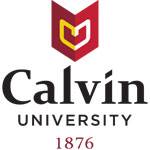 Calvin University is a private Christian liberal arts institution with a 370-acre campus located in a suburban area of Grand Rapids, Michigan. The University offers its 3,200+ students more than 100 academic options to choose from—including Actuarial Science, Biochemistry, Chemistry, Neuroscience, Optics, and more STEM fields—all of which are taught by world-class professors in average class sizes of 23. Calvin provides a student-centered education with no teaching assistants, a lot of hands-on design opportunities, and access to wide-ranging internships in the western Michigan region and elsewhere.
Calvin University is a private Christian liberal arts institution with a 370-acre campus located in a suburban area of Grand Rapids, Michigan. The University offers its 3,200+ students more than 100 academic options to choose from—including Actuarial Science, Biochemistry, Chemistry, Neuroscience, Optics, and more STEM fields—all of which are taught by world-class professors in average class sizes of 23. Calvin provides a student-centered education with no teaching assistants, a lot of hands-on design opportunities, and access to wide-ranging internships in the western Michigan region and elsewhere.
Grace College
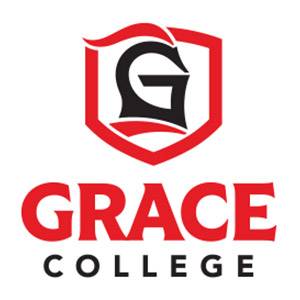 Grace College is an evangelical Christian college and seminary in Winona Lake, Indiana. With 1,901 students and a 20:1 student-faculty ratio, the College offers over 90 majors and minors, including programs in Engineering and Mechanical Engineering. Students at Grace benefit from locked tuition rates, hands-on learning experiences, and internships like making prosthetics for children, an annual dragster race, and more.
Grace College is an evangelical Christian college and seminary in Winona Lake, Indiana. With 1,901 students and a 20:1 student-faculty ratio, the College offers over 90 majors and minors, including programs in Engineering and Mechanical Engineering. Students at Grace benefit from locked tuition rates, hands-on learning experiences, and internships like making prosthetics for children, an annual dragster race, and more.
Kettering University
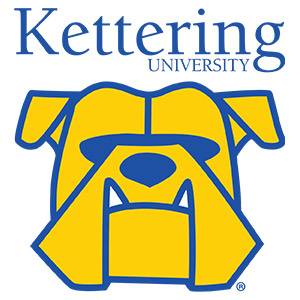 Kettering University is a private STEM and business university in Flint, Michigan—66 miles north of Detroit. Kettering offers nine highly specialized Science and Engineering majors—with academic focuses on advanced mobility, new energy vehicles, intelligent manufacturing, AI, and sustainability—that help students build the essential skills every engineer needs. Students rotate between 11-week classes and work experiences at one of nearly 500 cooperative employment partners, graduating with two and a half years of hands-on work experience on their résumés.
Kettering University is a private STEM and business university in Flint, Michigan—66 miles north of Detroit. Kettering offers nine highly specialized Science and Engineering majors—with academic focuses on advanced mobility, new energy vehicles, intelligent manufacturing, AI, and sustainability—that help students build the essential skills every engineer needs. Students rotate between 11-week classes and work experiences at one of nearly 500 cooperative employment partners, graduating with two and a half years of hands-on work experience on their résumés.
Lawrence Technological University
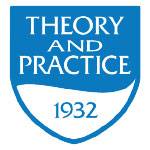 Lawrence Technological University is a private university in Southfield, Michigan—20 miles from the center of Detroit. With approximately 3,000 students and an 11:1 student-faculty ratio, the University offers over 100 academic programs, including Architectural Engineering, Electrical Engineering, and Robotics Engineering through the College of Engineering. Students at LTU can take advantage of a high-tech campus, brand-new laboratory equipment, school-provided laptops, and more.
Lawrence Technological University is a private university in Southfield, Michigan—20 miles from the center of Detroit. With approximately 3,000 students and an 11:1 student-faculty ratio, the University offers over 100 academic programs, including Architectural Engineering, Electrical Engineering, and Robotics Engineering through the College of Engineering. Students at LTU can take advantage of a high-tech campus, brand-new laboratory equipment, school-provided laptops, and more.
Miami University
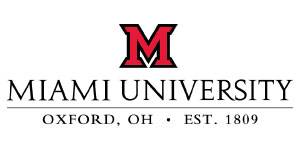 Miami University is a public coeducational university in Oxford, Ohio. With 16,500+ undergraduates and a 17:1 student-faculty ratio, the University offers over 120 majors, including Chemical Engineering, Engineering Physics, and Botany. Miami students take advantage of resources like the Global Miami Plan, flexible academics allowing for double majors and cocurricular opportunities, student groups like the Association for Computing Machinery, and more.
Miami University is a public coeducational university in Oxford, Ohio. With 16,500+ undergraduates and a 17:1 student-faculty ratio, the University offers over 120 majors, including Chemical Engineering, Engineering Physics, and Botany. Miami students take advantage of resources like the Global Miami Plan, flexible academics allowing for double majors and cocurricular opportunities, student groups like the Association for Computing Machinery, and more.
Moody Bible Institute
 Moody Bible Institute is a private church-affiliated institution in Chicago, Illinois. Students can choose from more than 20 areas of study, including a Bachelor of Science in Missionary Aviation Technology that leads students to become missionary pilots, private pilots, aviation mechanics, aviation instructors, and more. You’ll develop technical and spiritual skills and gain comprehensive training that will prepare you to meet the challenges presented by missions flying and maintenance in diverse environments.
Moody Bible Institute is a private church-affiliated institution in Chicago, Illinois. Students can choose from more than 20 areas of study, including a Bachelor of Science in Missionary Aviation Technology that leads students to become missionary pilots, private pilots, aviation mechanics, aviation instructors, and more. You’ll develop technical and spiritual skills and gain comprehensive training that will prepare you to meet the challenges presented by missions flying and maintenance in diverse environments.
Ohio Northern University
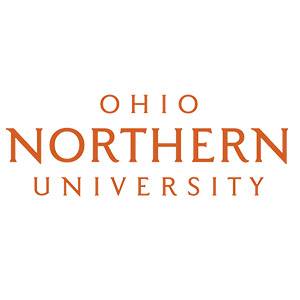 Ohio Northern University is a private Methodist comprehensive university in Ada, Ohio. ONU’s 3,116 students represent 50 states and 15 countries and study in class sizes of 19 students on average with a 12:1 student-faculty ratio. The University’s rigorous academic programs provide a solid foundation in engineering principles, allowing students to major in Civil Engineering, Computer Engineering, Computer Science, Electrical Engineering, Engineering Education, and Mechanical Engineering or choose the flexible Engineering Exploratory program.
Ohio Northern University is a private Methodist comprehensive university in Ada, Ohio. ONU’s 3,116 students represent 50 states and 15 countries and study in class sizes of 19 students on average with a 12:1 student-faculty ratio. The University’s rigorous academic programs provide a solid foundation in engineering principles, allowing students to major in Civil Engineering, Computer Engineering, Computer Science, Electrical Engineering, Engineering Education, and Mechanical Engineering or choose the flexible Engineering Exploratory program.
Ohio University
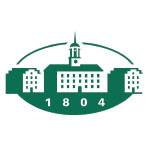 Ohio University is a comprehensive public university in Athens, Ohio—75 miles southeast of Columbus. With over 16,250 undergraduates and a 16:1 student-faculty ratio, the University offers over 250 areas of study, including Aviation Flight Technology, Civil Engineering, and Mechanical Engineering. OHIO students can take advantage of the Honors Program with cocurricular research and leadership opportunities, first-year student learning communities, student clubs like the Athens Astronomical Society and Biomedical Engineering Society, and more.
Ohio University is a comprehensive public university in Athens, Ohio—75 miles southeast of Columbus. With over 16,250 undergraduates and a 16:1 student-faculty ratio, the University offers over 250 areas of study, including Aviation Flight Technology, Civil Engineering, and Mechanical Engineering. OHIO students can take advantage of the Honors Program with cocurricular research and leadership opportunities, first-year student learning communities, student clubs like the Athens Astronomical Society and Biomedical Engineering Society, and more.
Saginaw Valley State University
 Saginaw Valley State University is a public comprehensive university in University Center, Michigan—35 miles north of Flint. Saginaw Valley offers its more than 7,000 undergraduate and graduate students 90 programs of study to choose from, including Alternative Energy, Applied Mathematics, and more through the College of Science, Engineering & Technology. SVSU students can take advantage of state-of-the-art lab equipment, 17 modern engineering laboratories, a metal casting foundry, a formula racing team, and more.
Saginaw Valley State University is a public comprehensive university in University Center, Michigan—35 miles north of Flint. Saginaw Valley offers its more than 7,000 undergraduate and graduate students 90 programs of study to choose from, including Alternative Energy, Applied Mathematics, and more through the College of Science, Engineering & Technology. SVSU students can take advantage of state-of-the-art lab equipment, 17 modern engineering laboratories, a metal casting foundry, a formula racing team, and more.
Saint Louis University
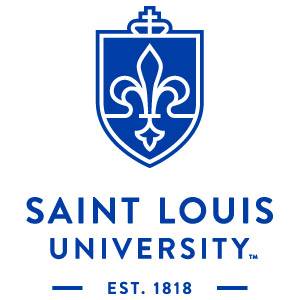 Saint Louis University is a Jesuit, Catholic university located in St. Louis, Missouri. STEM students at SLU have worked alongside faculty researchers on single X-ray photodetectors, designed a chemical vapor deposition system for the synthesis of nanoscale carbon materials, and built and designed small satellites launched by NASA. Internship opportunities with airlines, technology companies, and labs in St. Louis abound, leading to jobs for students in STEM fields after—or even before—graduation.
Saint Louis University is a Jesuit, Catholic university located in St. Louis, Missouri. STEM students at SLU have worked alongside faculty researchers on single X-ray photodetectors, designed a chemical vapor deposition system for the synthesis of nanoscale carbon materials, and built and designed small satellites launched by NASA. Internship opportunities with airlines, technology companies, and labs in St. Louis abound, leading to jobs for students in STEM fields after—or even before—graduation.
Trine University
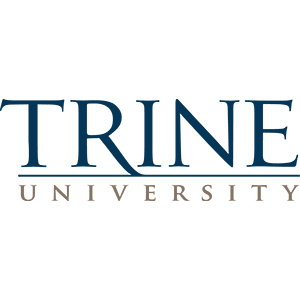 Trine University is an independent comprehensive university in Angola, Indiana—40 miles from Fort Wayne. With a total enrollment of 4,646 and a 17:1 student-faculty ratio, the University offers just over 40 majors, including Civil Engineering and Mechanical Engineering; more than 40 minors; and numerous online program options. Trine students benefit from a STEM Research and Design Symposium, an average aid package of $35,000, student groups like the American Chemical Society and Engineers Without Borders, and more.
Trine University is an independent comprehensive university in Angola, Indiana—40 miles from Fort Wayne. With a total enrollment of 4,646 and a 17:1 student-faculty ratio, the University offers just over 40 majors, including Civil Engineering and Mechanical Engineering; more than 40 minors; and numerous online program options. Trine students benefit from a STEM Research and Design Symposium, an average aid package of $35,000, student groups like the American Chemical Society and Engineers Without Borders, and more.
University of Akron
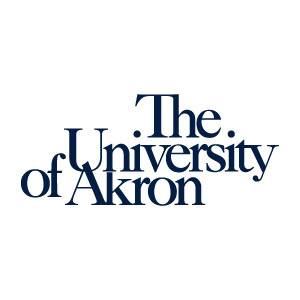 The University of Akron is a multipurpose public institution in Akron, Ohio—within walking distance of downtown. With 11,300+ undergraduates and a 16:1 student-faculty ratio, the University offers more than 200 undergraduate majors, minors, and certificates, including STEM programs through the College of Engineering & Polymer Science. UA students benefit from the Co-op and Placement Office, student design teams, partnerships with industry giants, the Musson Charitable Foundation ICS testbed for cybersecurity, and more.
The University of Akron is a multipurpose public institution in Akron, Ohio—within walking distance of downtown. With 11,300+ undergraduates and a 16:1 student-faculty ratio, the University offers more than 200 undergraduate majors, minors, and certificates, including STEM programs through the College of Engineering & Polymer Science. UA students benefit from the Co-op and Placement Office, student design teams, partnerships with industry giants, the Musson Charitable Foundation ICS testbed for cybersecurity, and more.
University of Chicago
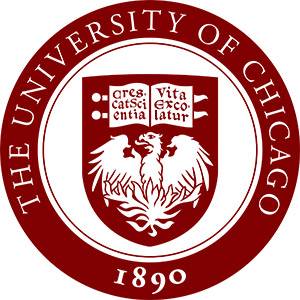 The University of Chicago is a comprehensive private university only seven miles south of downtown Chicago, Illinois. With approximately 6,800 undergraduates and a 5:1 student-faculty ratio, the University offers over 50 majors, including new majors in Molecular Engineering and Astronomy & Astrophysics, plus more than 40 minors. UChicago students can take advantage of more than 160 institutes and centers, numerous research opportunities across a wide variety of scientific disciplines, and more.
The University of Chicago is a comprehensive private university only seven miles south of downtown Chicago, Illinois. With approximately 6,800 undergraduates and a 5:1 student-faculty ratio, the University offers over 50 majors, including new majors in Molecular Engineering and Astronomy & Astrophysics, plus more than 40 minors. UChicago students can take advantage of more than 160 institutes and centers, numerous research opportunities across a wide variety of scientific disciplines, and more.
University of Cincinnati
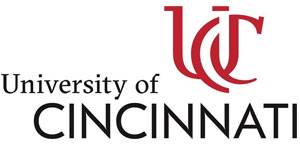 The University of Cincinnati is a public research institution just two miles from downtown Cincinnati, Ohio. With nearly 47,000 students and a 16:1 student-faculty ratio, the University offers 414 degree programs, including STEM majors in the College of Engineering & Applied Sciences, plus 262 minors and certificates. Students at UC can take advantage of partnerships with more than 1,200 companies in the birthplace of cooperative education, student groups like AeroCats and the Biomedical Informatics Student Association, and more.
The University of Cincinnati is a public research institution just two miles from downtown Cincinnati, Ohio. With nearly 47,000 students and a 16:1 student-faculty ratio, the University offers 414 degree programs, including STEM majors in the College of Engineering & Applied Sciences, plus 262 minors and certificates. Students at UC can take advantage of partnerships with more than 1,200 companies in the birthplace of cooperative education, student groups like AeroCats and the Biomedical Informatics Student Association, and more.
Wayne State University
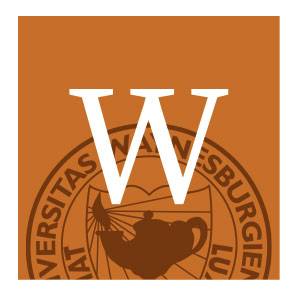 Wayne State University is a comprehensive public university in Detroit, Michigan. With 24,000 undergraduates, the University offers 340 programs across 13 schools and colleges, including Computer Technology and Electrical Engineering. Students at Wayne State benefit from a High Impact Practices–based Engineering curriculum; research centers, laboratories, and natural environments; student groups like the American Society of Civil Engineering and the Biomedical Engineering Society; and more.
Wayne State University is a comprehensive public university in Detroit, Michigan. With 24,000 undergraduates, the University offers 340 programs across 13 schools and colleges, including Computer Technology and Electrical Engineering. Students at Wayne State benefit from a High Impact Practices–based Engineering curriculum; research centers, laboratories, and natural environments; student groups like the American Society of Civil Engineering and the Biomedical Engineering Society; and more.
Want to find a STEM program in a different region of the country? Check out these Great Colleges and Universities for Science and Engineering in New England!






